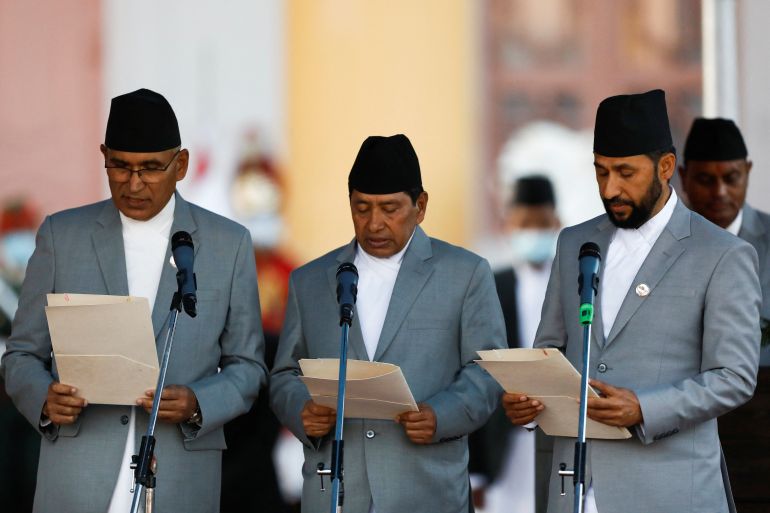Nepal Supreme Court removes deputy PM over citizenship
Rabi Lamichhane, who entered politics on an anti-corruption platform, is removed from his post for violating citizenship laws.

Nepal’s Supreme Court has removed the deputy prime minister from office and from his parliamentary seat for violating citizenship laws.
Rabi Lamichhane, 48, had become deputy prime minister and the powerful home minister after his newly formed party joined the coalition government last month.
Keep reading
list of 3 itemsEx-Maoist rebel leader Prachanda becomes Nepal PM for third time
Photos: Plane carrying 72 people crashes in Nepal
Lamichhane, a former popular television host, relinquished his US citizenship in 2018, but the court said on Friday that he had not followed due process.
“The constitutional bench of the Supreme Court has ruled that his candidacy and election to the post of a member of the House of Representatives are void,” Supreme Court spokesman Bimal Poudel told the Agence France-Presse news agency.
The court ruled that after abandoning his American citizenship, Lamichhane did not reapply for Nepali nationality. Therefore, it said, he improperly contested the election because of his invalid citizenship. Nepal does not allow dual citizenship.
Anti-corruption crusader
Lamichhane walked out of the Ministry of Home Affairs and told reporters that he was now without any citizenship and was unable to make any comments.
There was no immediate comment from the government or the prime minister’s office.
Lamichhane, who made a name for himself as an anti-corruption crusader, formed the National Independent Party with people who had no connections to political groups. The party won 20 seats in the November 20 elections for the House of Representatives, the lower house of parliament.
The departure of the minister was unlikely to affect the future of the ruling alliance, political analyst Krishna Khanal said.
Lamichhane’s lawyer Sunil Pokhrel told the Reuters news agency that Lamichhane will now seek to get a regular citizenship card and contest a by-election in the same constituency in southern Nepal.
He was elected on the back of widespread discontent over Nepal’s elderly, back-scratching political leadership at a time when the country’s remittance- and tourism-dependent economy is teetering.
“This issue is a setback to that wave of change,” Guna Raj Luitel, editor of the Nagarik newspaper told AFP.
“The people were hopeful in the new faces, but this will affect the trust they had put in them.”